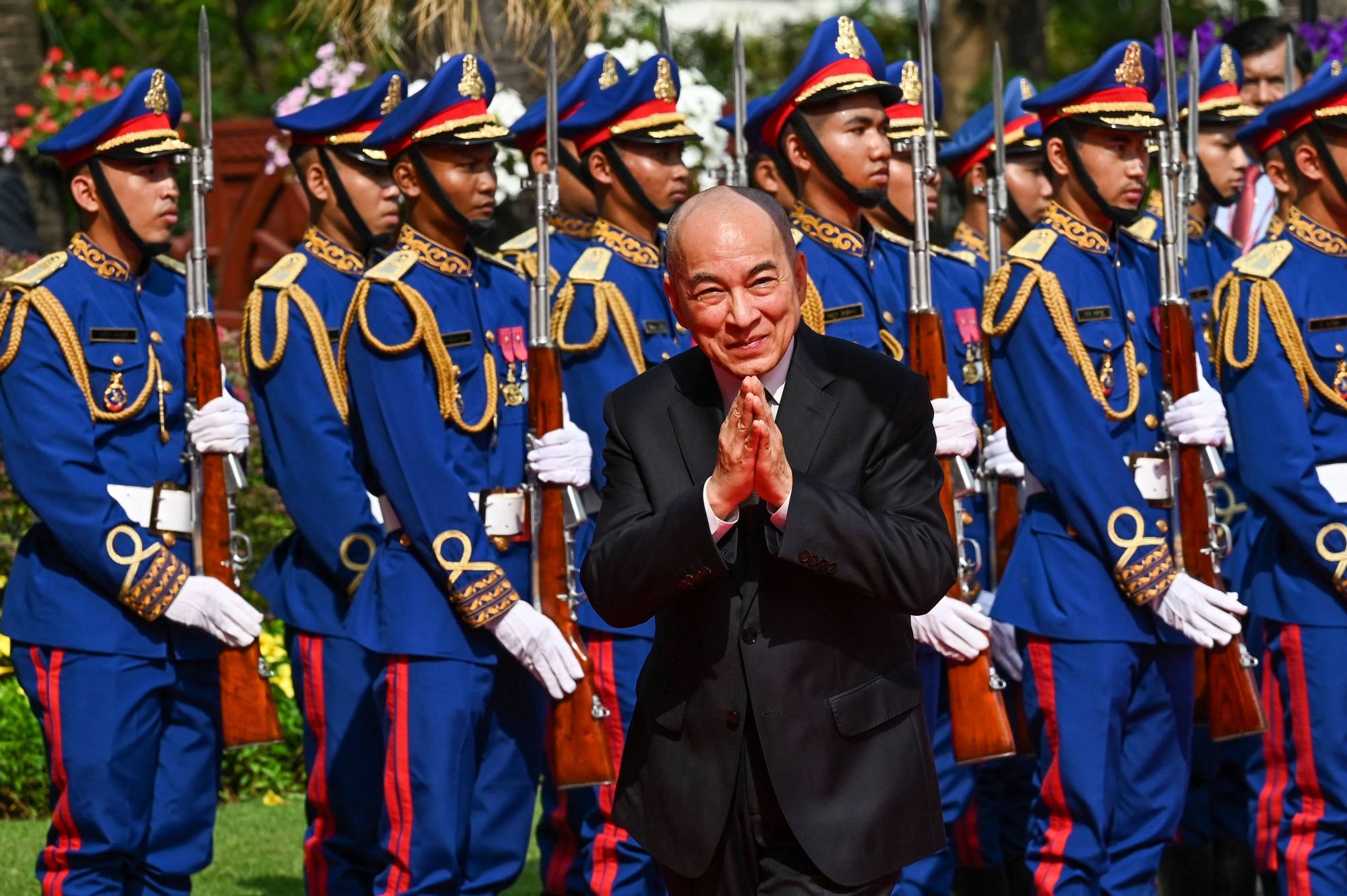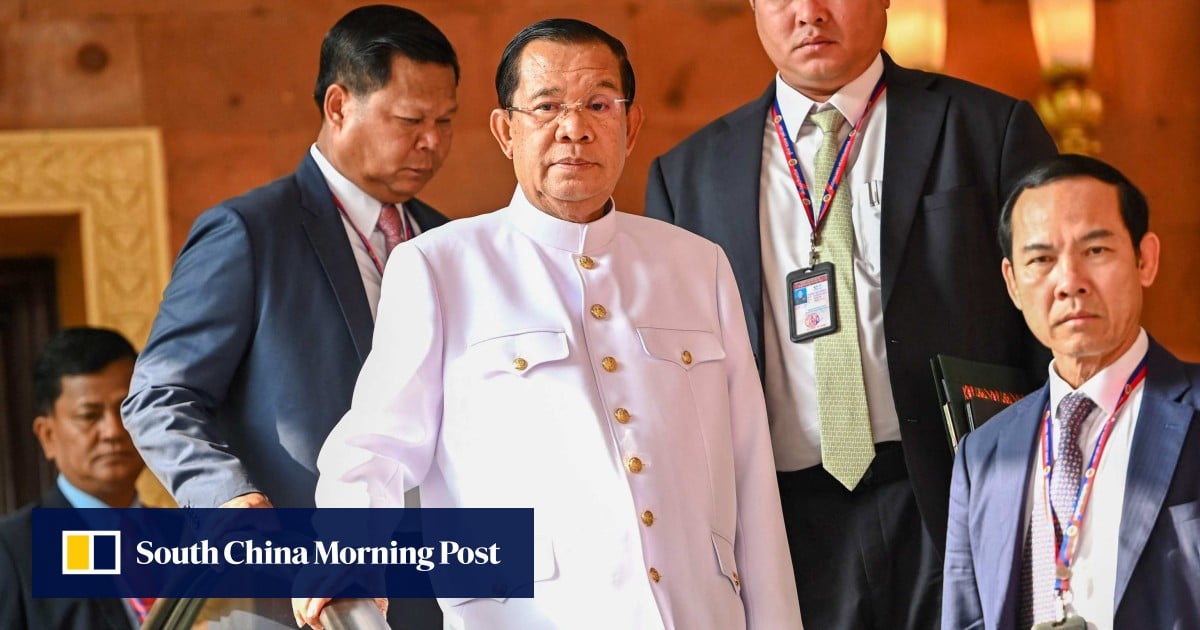On Wednesday senators unanimously voted to approve Hun Sen as president of the senate after King Norodom Sihamoni convened its first meeting.
The position allows Hun Sen to act as acting head of state when the king is overseas.
Addressing the senators after the vote, Hun Sen thanked them for the “honour”.
“It is my first time to sit on such a high chair,” he said, saying he would use the second-highest ceremonial role – only superseded by the king – to further Cambodia’s international diplomacy.

There are 62 senators, with 58 elected in February by 125 MPs and more than 11,000 local administrators, mostly members of Hun Sen’s party.
King Norodom Sihamoni appoints two senators, while the National Assembly appoints two others.
Analysts said Hun Sen’s new role would allow him to continue to dominate the country.
“The Senate isn’t a powerful political or legislative body, but it holds the highest ceremonial role as the highest political symbol of the nation,” Cambodian political analyst Ou Virak said.
In Cambodia, symbolism is everywhere and everything
He said because of the king’s frequent travels, Hun Sen taking the role of senate president was significant – and hugely symbolic.
“In Cambodia, symbolism is everywhere and everything,” he said.
It is the latest in a series of moves that have seen Hun Sen consolidate power across the government.
US expresses ‘serious concerns’ about China-funded upgrade to Cambodia navy base
US expresses ‘serious concerns’ about China-funded upgrade to Cambodia navy base
The administration now includes a number of Hun Sen’s relatives, including his youngest son Hun Many as a deputy PM, with several children of his allies also holding top jobs.
After coming to power in 1985, Hun Sen helped modernise a country devastated by civil war and genocide.
But critics say his rule has also been marked by environmental destruction, entrenched corruption and the elimination of nearly all political rivals.

